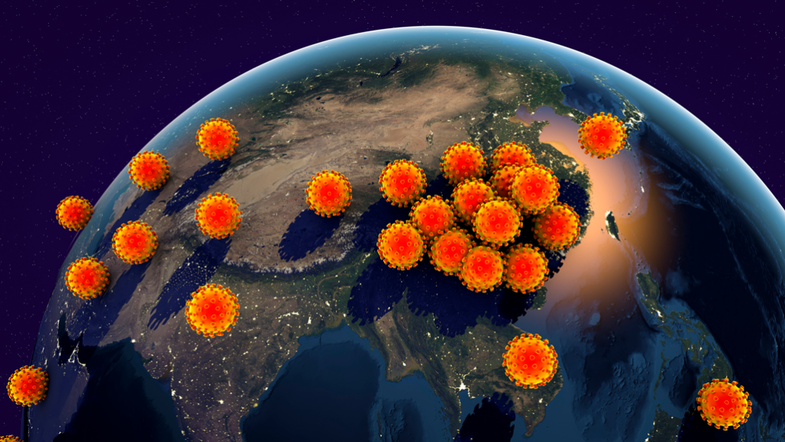
Five days ago, the WHO declared Covid-19 pandemic, which means it is widespread worldwide. There are currently over 160,000 confirmed cases and 6400 lives lost.
As states and cities are quarantined, restricted, canceled, and declared a state of emergency, the question arises: When will the pandemic end? In short, no one knows for sure, but infectious disease experts and researchers know something more than others.
How long will we be facing coronavirus?
It is practically impossible to determine when the coronavirus will fade because it is a new and unpredictable virus, ?says Faheem Younus, a physician and head of infectious diseases at the University of Maryland Upper Chesapeake Health. But the world has gone through a pandemic before, and in time, they are brought under control through vaccination of the population. Analyzing previous pandemics, researchers have concluded that this pandemic can last from 12-36 months.
In 2009, for example, the H1N1 flu pandemic (also known as swine flu) was declared. The WHO declared the pandemic in June, the vaccines were approved in September, and in October people started getting vaccinated. The pandemic ended in August 2010.
The problem is that you can't model a new pandemic based on an old one because it's not the same virus. Viruses spread and behave differently, ?says Rishi Desai, an epidemic physician at the Center for Disease Control in America. The more information we have about Covid-19, the more accurate the predictions we will make about it. "I expect Covid-19 to be a problem for a good part of 2020 and the situation will improve by early 2021," says Dr. Desai. "After a year a vaccine may have been created and we will have more experience with the disease."
The good news: Currently, scientists are working on developing some vaccines for both animals and humans. The WHO director said it could take 18 months to perfect a vaccine.
Will warm weather remove the coronavirus?
You may have heard that the Covid-19 pandemic may fade in the spring as other strains of coronaviruses reach their peak between December and March. Again, "we cannot speak with certainty about the direction this virus will take," says Sandra Kesh, a medical specialist and disease specialist. At the moment, experts do not know enough about how Covid-19 spreads and whether the change in temperatures will have any impact.
Also, changing the seasons has little or no impact on new viruses, ?says Dr. Kesh. So you can go out and get sick even though it's not winter. Keep in mind that the pandemic is global, so if it's summer, then it's winter. As the situation improves in the northern hemisphere, it deteriorates in the southern hemisphere.
What will happen to coronavirus in the coming months?
"Because this is a new virus, those who haven't been infected (most of the world) have no immunity to it," says Dr. Kesh. At worst, ?if many people get sick in the same place, the health system will collapse and there will not be enough resources for everyone. Life will not go on as before. ? WHO has demanded a 40% increase in medical device production as hospital staff are facing shortages of N95 gloves and masks.
In Albania, as predicted, car traffic, mass gatherings, concerts, bars, bars and restaurants have been closed, people are being urged to stay home longer and borders are closed.
It all has a good side: "As the virus spreads, more people will gain immunity against it and the impact will diminish over time," says Dr. Kesh. However, it is not yet known when this will happen.
What to do now?
Make sure you are prepared for the changes that await you in your lifestyle. Follow the flow because the future is not known.
But the future depends on how we behave. Listen to the experts and keep calm, wash your hands frequently, do not touch the face, be informed of symptoms and stay away from vulnerable age groups. Encourage family and friends to do the same. To feel better: "For a healthy person, Covid-19 is not dangerous and will have no fatal consequences," says Dr. Younus.
Adapted from Women's Health





